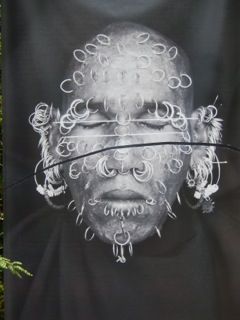Ishikawa Sensei and Okudaira Sensei
- At July 27, 2016
- By anneblog
- In Annes Letters
 0
0
Dear Family and Friends,
The other day I had the privilege of meeting two doctors who are doing very significant work here in Tohoku.


“Dr. Ishikawa, how have you been able to stay in such a complex field for so long? I mean, treating alcoholics is not like curing a cold, where there is a beginning and an end. What keeps you going day in and day out, especially when your work is filled with so many setbacks, so many disappointments, and with no guarantee of success?”
Dr. Ishikawa took a deep breath and then began to unfold his heart of wisdom and of profound love.

“But now after thousands of cases and years of experience, I see how much my outlook has changed. First of all, and most importantly, I realize I am not the one who cures. And surely I am far from alone! Dealing with alcoholics means teamwork: the patient, of course, but also the family, the entire hospital staff – and that includes everyone from my colleagues at the top, like Dr. Okudaira here, all the way through to the cleaning people – and then myself. And of course, Kami (Gods) are an integral part of the process, too.

“I no longer see myself as the center, but rather as a coordinator. I link all the other members of the team. I try to match the right person, at the right time, for the right care for each of our patients. Needs change daily, even hourly, so the work is never ending. But I like to serve from behind, so people develop their own power in the treatment process. Of course, respect for all is paramount.

“And indeed, treating an alcoholic is a process. The ongoing stages are what I focus on now. Did you know there are specific stages in the patient’s attitude? After the initial denial and blaming comes ‘I must go into treatment. I must try to stop drinking for my family and for others. If I don’t, they will be disappointed and angry with me.’
“That step is very important, but it is only the beginning. Here the motivation is external, so it can never be permanent. But eventually the next phase emerges. And that is, “I really want to break this habit.” Here, as you can see, the incentive is from within the patient. This stage takes incredible courage to work with and through. The tug of war between the desire to stop and the power of the addiction can be fierce, almost overwhelming. But again, with the support of the family and the medical team, the person may eventually overcome his or her incessant need to drink.

“But even that glorious success is only one step in the long, ongoing healing process. The next phase comes when the patient realizes, ‘I no longer even want to drink. I am OK without the bottle.’
“These stages parallel the inner journey of the patient as well. At the start of therapy, the person suffering can only see blackness. All memories, all present thoughts, and all future images are a vast endless ‘Dark Night of the Soul’. The sense of hopelessness and of despair are fathomless.



Our conversation naturally drifted to other addictions. “There is a huge gambling problem here in Japan,” Dr. Ishikawa continued. “Pachinko parlors are making billions. They are so clever at luring people into their poisonous webs. And it is tremendously difficult to extricate yourself from them. Curiously, brain scans show that when people are gambling, their brains seem to register less excitement than they would normally. That, of course, means that they need more and more stimulus to feel much of anything at all. And with that, they are hooked.
“Another alarming addiction is kids hooked on computer games. It is truly frightening to see how many are swept into that vortex of compulsive entertainment.
“How do you treat youngsters with such problems,” I queried. “Is it the same way as with alcoholics?”
“Yes and no. Young people’s development and needs can be very different from those of adults. But no matter what we are treating, we always take a team approach. And in each case we try to work with each particular patient according to his or her specific needs. Of course, working with parents is essential when treating youngsters.
“Helsinki has an excellent system to treat substance abuse. It is a three-year program: two weeks as in inpatient, three as an outpatient. This process repeats itself for the full three years. The success rate of non-returnees is very high.
“I would really love to see a similar program here in Japan. But the patients in Finland have to pay the entire fee in advance. That would be the case here, too. Of course, considering the overall cost of treatment, the amount is reasonable. But most people gasp at the expense, so we have not been able to get this kind of rehabilitation program off the ground here. Not yet. But who knows what the future might bring?”
As a closing comment, Dr. Ishikawa talked about dependency and independence. He said that when people dependent on others or on alcohol, they might be aware of three or maybe four people who are supporting them. But when they begin to stand on their own two feet and feel more independent – of others and of alcohol – their awareness changes. They begin to see that well over a hundred people are there supporting them, and have been all along.”




